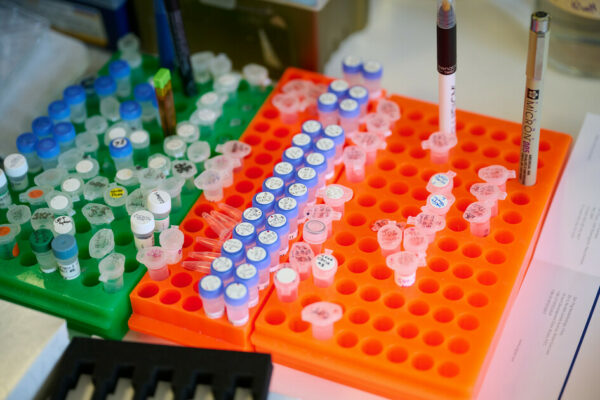We fund pioneering research for better treatments to improve people’s lives today, and to transform those of future generations.
Filter results
Research condition
Research type
Geographic Location
Studying how muscles develop in children diagnosed with SMA at birth
Professor Laurent Servais is studying how children with spinal muscular atrophy (SMA) grow and develop after being diagnosed at birth. This could help guide when treatment should start or be added.
Developing a triple-action treatment for Duchenne muscular dystrophy
Dr Alberto Malerba and his PhD student are working on a new treatment for Duchenne muscular dystrophy that does three different jobs to help protect muscles and slow down the speed at which the condition gets worse.
Using virtual reality and soft robotics to make exercise easier and fun for children with SMA
Professor Liang He is creating a new tool for children with spinal muscular atrophy (SMA) that uses soft robotics and virtual reality to support movement and make physiotherapy more fun.
Understanding what happens to genetic messages in myotonic dystrophy
Professor David Brook and his PhD student are exploring why a type of genetic message, called RNA, gets stuck in cells in myotonic dystrophy.
Exploring new tools to correct gene changes in muscle wasting conditions
Professor Haiyan Zhou and her PhD student are exploring two ways to correct a type of gene change in muscle wasting conditions, which could lead to future treatments.
Understanding how DUX4 causes muscle damage in facioscapulohumeral muscular dystrophy
Professor Peter Zammit and his PhD student are studying how the DUX4 gene affects muscle cells in FSHD, to help find new ways to treat the condition.
Learning more about distal and myofibrillar myopathies in the UK
Professor Giorgio Tasca and his PhD student are gathering vital information about distal and myofibrillar myopathies to help improve diagnosis, care, and support the development of future treatments.
A new clinic for people still waiting for a genetic diagnosis in Northern Ireland
Dr Grace McMacken is setting up the first specialist clinic in Northern Ireland for people who have symptoms of a muscle wasting condition but don’t yet have a genetic diagnosis. The clinic aims to improve diagnosis, care, and access to treatment.
Improving how scientists identify new potential treatments for FSHD
Dr Virginie Mariot is exploring a new way to identify potential FSHD treatments, which could help scientists choose the most promising ones to take into clinical trials.
Understanding muscle weakness in VCP-associated multisystem proteinopathy type 1
Dr Rebecca Jones and her PhD student are exploring how changes to a protein called VCP causes muscle weakness in people with VCP MSP-1
Creating a better MRI scan to test new treatments for FSHD
Dr Kieren Hollingsworth is developing a new MRI scan to measure muscle damage more clearly in FSHD, making it easier and faster to test potential treatments.
Exploring the early stages of Duchenne muscular dystrophy to help treat it sooner
Professor Darek Gorecki is using frogs with a type of Duchenne muscular dystrophy (DMD) to explore how the condition begins and whether it could be treated earlier in life.
